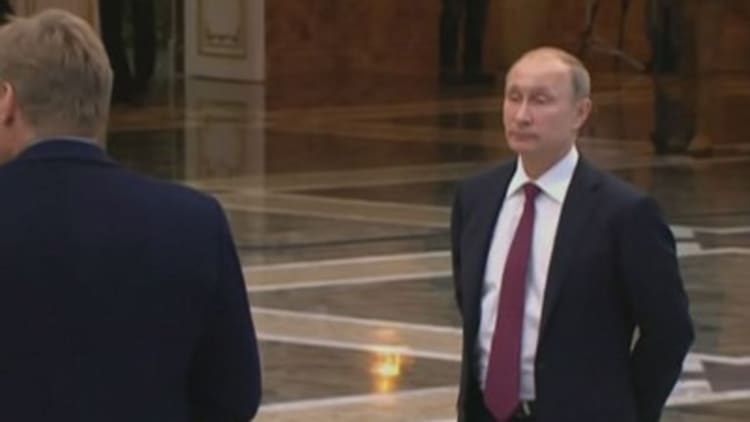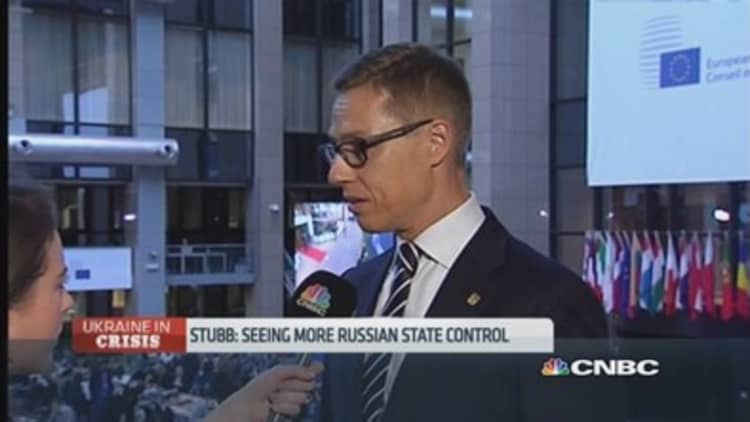
As the dust settles on the newly-signed peace deal between Ukraine and Russia, European leaders and experts are already questioning Russian President Vladimir Putin's motives.
The deal, agreed on Thursday following 16 hours of negotiations, involves a cease-fire from February 17. Leaders also agreed on the withdrawal of heavy weaponry from the east Ukraine region, prisoner exchanges and constitutional reform by Ukraine to give certain regions more autonomy.
Less than 24 hours after the cease-fire was signed and 48 hours before it was due to start there were reports from the BBC of shelling in the Donetsk region in Ukraine.
The former British ambassador to Russia told CNBC Friday said the deal was a strategic move by President Putin, and "very opaque and open-ended."
"A pause now suits (Putin)," Andrew Wood told CNBC Europe's "Squawk Box."
"Perhaps he thought things were in danger of getting out of control; perhaps he feels he's got enough. But what he's achieved is a continuing hold over the form of government that exists in Kiev, and a significant hold over a part of Ukraine."
The ex-diplomat added: "I wouldn't say that this deal is in any way a defeat for Putin."
He also stressed that one of the deal's key provisions -- the closure of the border between Russia and Ukraine – would not happen until the end of this year, if all the conditions were fulfilled.
Read MoreHow long will THIS Ukraine cease-fire deal last?
"So there's every reason to suppose the Russians will just continue to boost their allies in the region," he said.
It is important for the West to keep open the option of supplying defensive armaments to Ukraine, "as and when the Russians break their word," Wood added.
Skepticism

Despite helping to broker the peace deal alongside her French counterpart Francois Hollande, German Chancellor Angela Merkel said Thursday that European officials were preparing fresh economic sanctions against Russia in case the truce did not hold.
It could be a case of once bitten, twice shy: an earlier cease-fire failed to keep to peace, and fighting between pro-Russia separatists and the Ukraine military in the east of the country resumed in September last year.
European Council President Donald Tusk said Thursday that the region's leaders were wary of the accord.
"We are very cautious after a bad experience with the so-called 'Minsk 1' peace deal so it's obvious you have to be very cautious," he told a press conference after a European Union summit. "Our trust in the goodwill in President Putin is limited -- this is why we have to maintain our decision on sanctions."
Following the summit, Finnish Prime Minister Alexander Stubb told CNBC Thursday that Russia risked being left out in the cold if it did not abide by the deal.
"If Putin doesn't grab the hand of peace at this stage I think we'll be in this for the long haul," he said.
"We're 25 years into the end of the Cold War and we've felt that Russia should have become more international and part of the international community. If they now reject this peace deal I think they'll be out in the cold for a long time."
Stubb warned that "the ink is not dry" on the deal, which might not even be implemented. "I see a glimmer of hope but I'm not confident this will last," he said.
- By CNBC's Holly Ellyatt, follow her on Twitter @HollyEllyatt. Follow us on Twitter: @CNBCWorld



